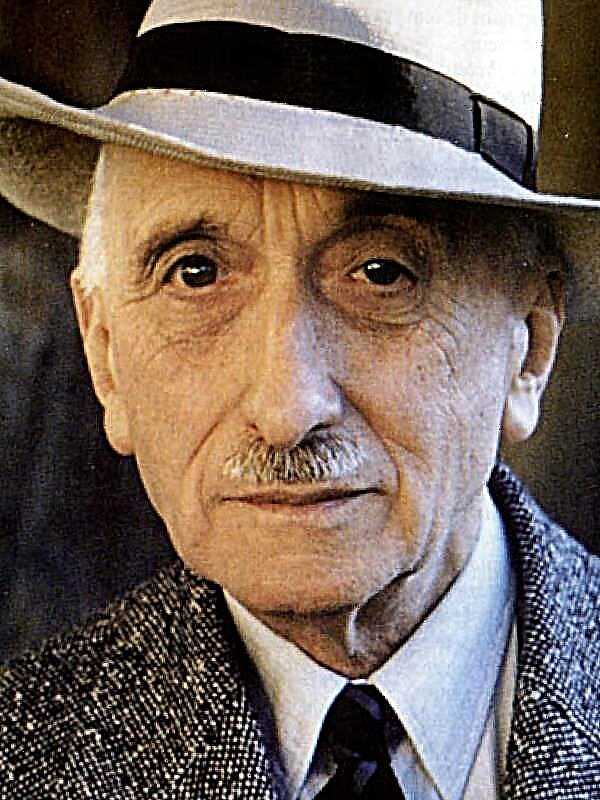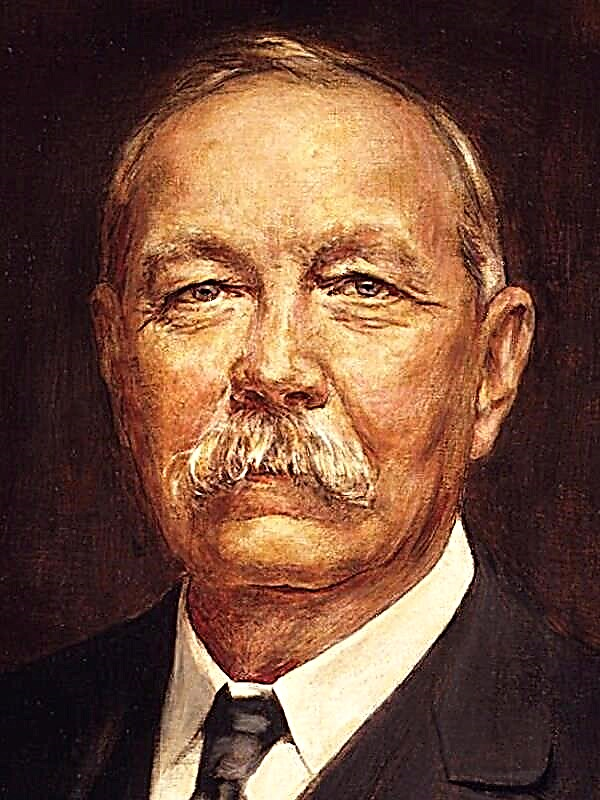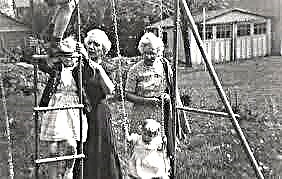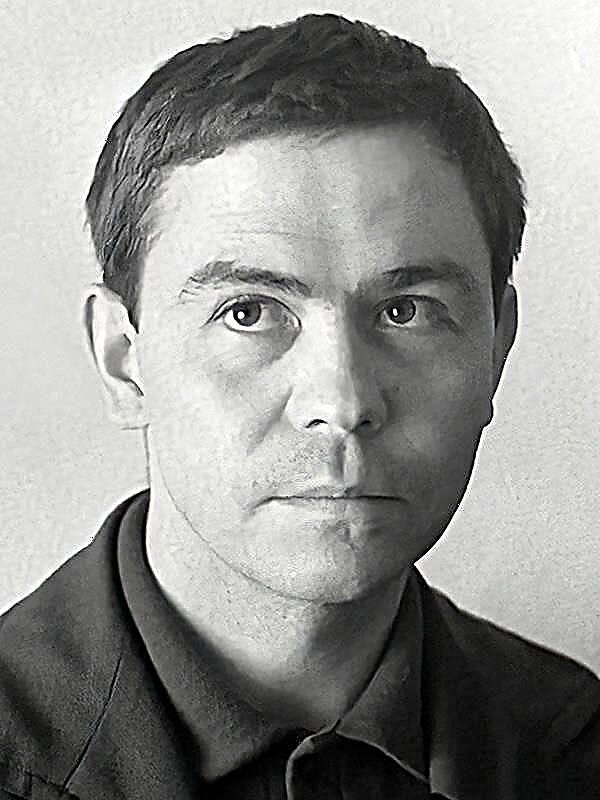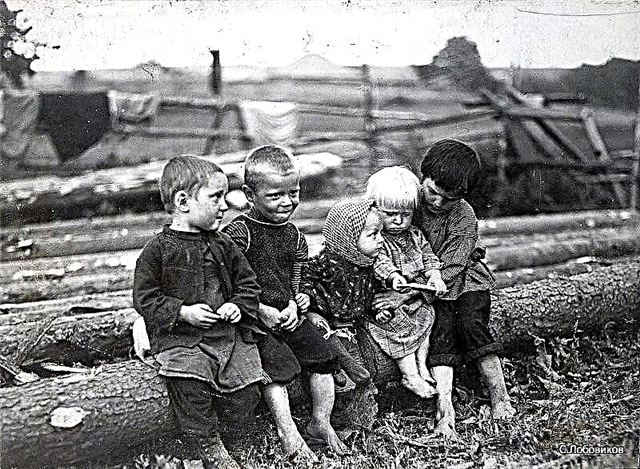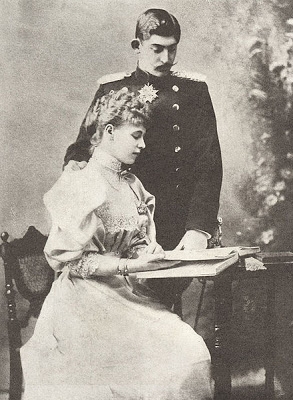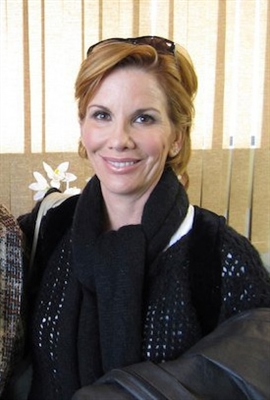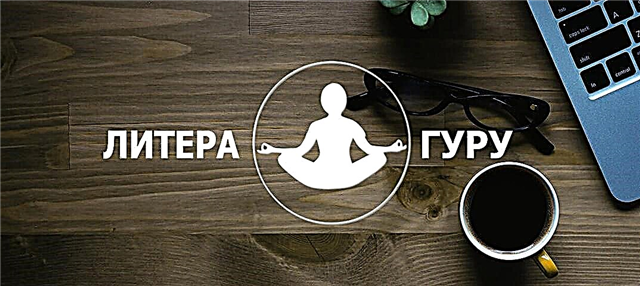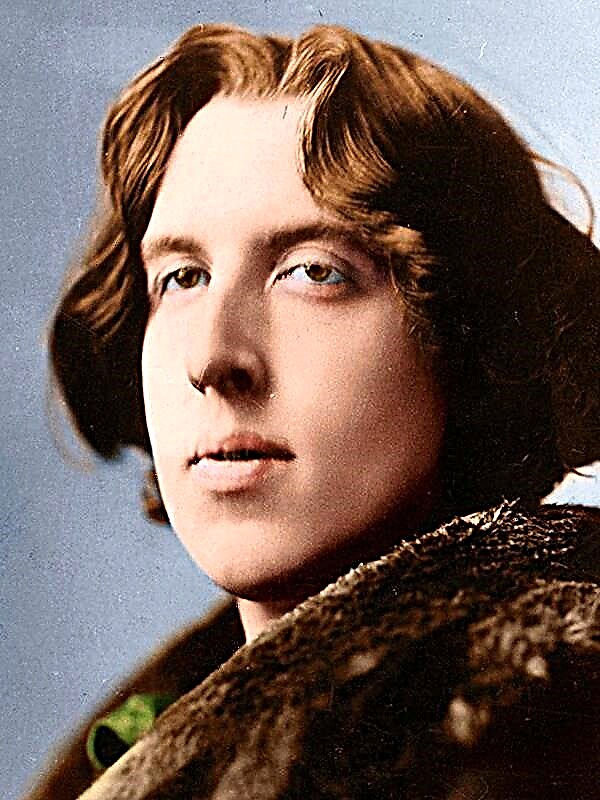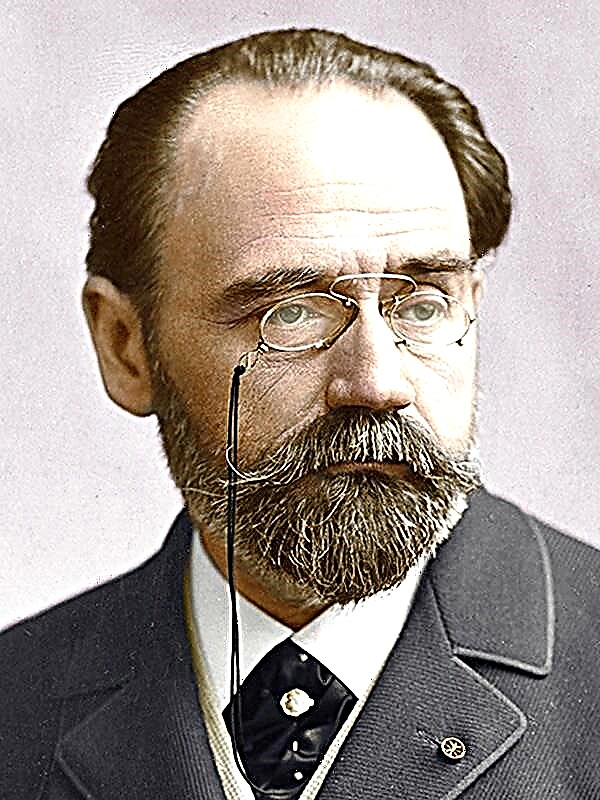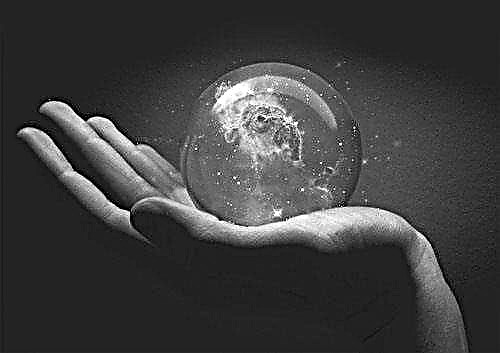: The old woman is forcibly evicted from her native village to be flooded. Forced to leave their homes and graves, they are hard to say goodbye to their homelands.
1 — 3
For the village of Matera, standing on an island of the same name, the last spring has come. A dam for a hydroelectric power station was built downstream, and a huge reservoir spilled on the site of the island. This year, bread was not sown in all fields, and many mothers already lived in two houses, driving into the village only to plant potatoes. The village "withered, like a chopped tree, rooted, left the usual course."
The island in the shape of an iron stretched across the Hangar for five miles. From the lower end, an island of Podmoga was nestled to it, where the Materinians had additional fields and hayfields. In its lifetime, Matera has seen bearded Cossacks, and trading people, and convicts. From the Kolchakites at the upper end of the island there was a hut. There was a church built with the money of a merchant buried here, which “was adapted for storage at the collective farm time”, and a mill. A plane landed on an old pasture twice a week - it drove people to the city.
And as there seemed to be no end and edge to the running water, there wasn’t a century to the village either: some went to the graveyard, others were born, old buildings collapsed, new ones were cut.
So Mater lived for more than three hundred years, until the time came to die.
By summer, only children and old people remained in the village. Three old women - Daria, Nastasya and Sima - loved to drink tea from a handsome copper samovar. Having tea, they had long conversations. Often they were joined by the old man Bogodul, who lived in the Kolchak barracks. Grandfather was dense, like a goblin, and talked mostly obscene.
Daria and Nastasya were local, and Sima came to Matera in search of “an old man by whom she could bask”, but the only one in the village was afraid of the dumb Simina daughter Valka. Sima settled in an empty hut on the edge of the village. Valka grew up, gave birth to an unknown son, and left him, having disappeared without a trace. So Sima remained with her five-year-old granddaughter Kolka, wild and silent.
Nastasya and her husband Yegor were left alone in their old age - the war took two sons, the third one fell into the ice with a tractor and drowned, and the daughter died of cancer. Nastasya began to “bewitch” - telling the truth that to his old man: either he was burned to death, then he had run out of blood, then he cried all night. Good people didn’t notice Nastasya’s “insanity”; evil people scoffed. “From evil or from confusion,” Grandfather Yegor changed his house not to a village, but to an apartment in the city, where houses were built for single old people. He and grandmother Nastasya were the first to say goodbye to Matera.
Grandmothers were peacefully drinking tea when Bohodul burst into the house and shouted that strangers were robbing the cemetery. Old women burst into the rural cemetery, where unfamiliar workers were already finishing pulling crosses, fences, bedside tables into a heap. It was a sanitary brigade sent by the sanitary-epidemiological station to clear the flooded territories.
People gathered from all over the village stopped the workers. In vain, the chairman of the village council, Vorontsov, explained that it should be so. Materyntsians defended the cemetery and all evening they laid back crosses at their native graves.
4 — 6
They knew Bogodul for a long time - he changed small groceries for groceries in the surrounding villages. He chose his mother as his last refuge. In winter, Bogodul lived with one old woman, then with another, and in the summer he moved to Kolchak’s hut. Despite the constant swearing, grandmothers loved him and vied with each other, and the elderly did not like him.
Outwardly, Bogodul did not change for many years and looked like a wild forest man. Rumor had it that he was a Pole and a former convict exiled for the murder, but they did not know anything about him for certain. Bohodul did not want to hear about the relocation.
Daria survived the ruin of the cemetery hard, because all her ancestors lay there. She did not look, allowed ruin, and soon everything would flood with water at all, and Daria would lie in a foreign land, away from her parents and grandfathers.
Daria's parents died in one year. Mother - suddenly, and father, crushed by the millstone, was sick for a long time. Daria told Bogodulu who had come to tea about this, complained that people had thinned and wrecked their conscience in such a way that “they were not capable of owning it”, and it was enough for the show.
They do very big things, they forgot about the little ones, and with big things they have a conscience, however, what a pity, there’s nothing to bite her with.
Then Daria fell into memories of Mater and her family. Her mother was not local, her father brought her “from the Buryat side”. She was afraid of water all her life, but now only Daria understood what that fear was for.
Daria gave birth to six children. The eldest was taken by the war, the younger was hit by a tree in a forest, the daughter died during childbirth. There were three left - two sons and a daughter. The eldest son, five-year-old Pavel, now lived in two houses and came from time to time, tired of the mess that reigned in the freshly baked state farm. Daria asked her son to transfer the graves of her parents to the village, he promised, but somehow hesitantly.
The village, which will be attended by people from twelve villages to be flooded, consisted of two-story houses, each with two apartments in two levels connected by a steep ladder. At the houses there was a tiny plot, a cellar, a chicken coop, a hut for a pig, but there was nowhere to put a cow, and there were no mowings with pastures there - the village was surrounded by the taiga, which was now heavily uprooted by arable land.
Those who moved to the village were paid a good amount, provided that they themselves would burn their house. The young people could not wait to “set on fire the father-grandfather’s hut” and settle in the apartment with all the amenities. Petrukh, the dissolute son of old Katerina, was in a hurry to get money for the hut, but his house was declared a wooden architecture monument and promised to be taken to a museum.
The owner of Matera, “a small, slightly larger cat, resembles no other animal”, which neither people nor animals could see, also foresaw that the island was coming to an end. At night, he went around the village and the surrounding fields. Running past the barracks of Bogodul, the Boss already knew that the old man was living last summer, and at the hut of Petruha he felt a bitter smell of burning - and this ancient house, and the rest of the hut were preparing for imminent death in the fire.
7 — 9
It's time to leave Nastasya. She said goodbye to her house hard, did not sleep all night, and not everything was taken away - in September she was going to return to dig up potatoes. In the house there was all the belongings acquired by grandfathers, unnecessary in the city.
In the morning, Grandfather Yegor took away the weeping Katerina, and at night Petrukhin's hut caught fire. The day before he returned to the island and told his mother to move out. Katerina spent the night at Daria when the fire started. Daria was an old woman with a character, strong and authoritative, around whom the old people remaining in Matera gathered.
The Materinians crowded around the burning house silently looked at the fire.
So a man with frenzied attention sticks his eyes into the dead, trying to imagine in advance in the same position, which he can not pass, himself.
Petruha ran between them and said that the hut caught fire suddenly, and he nearly burned alive. The people knew Petrukh as flaky and did not believe him. Only the Boss saw Petruha setting fire to his native home, and felt the pain of the old hut. After the fire, Petruha disappeared along with the money received for the house, and Katerina stayed with Daria.
Knowing that mother was not alone now, Paul came even less often. He understood that it was necessary to build a dam, but, looking at the new village, he only shrugged his hands - it was so ridiculous that it was built. A neat row of houses stood on bare stone and clay. For the garden, imported black earth was needed, and shallow cellars immediately flooded. It was evident that the village was not built for themselves and least of all thought whether it would be convenient to live in it.
Now Pavel worked as a team leader, plowed up a “poor forest land”, regretted the rich lands of Matera and thought if this was too high a price for cheap electricity. He looked at young people who were in no doubt and felt that he was aging, lagging behind too fast a life.
Pavel’s wife, Sonya, was delighted with the “city” apartment, but Daria would never get used to it. Paul knew this and was afraid of the day when he would have to take his mother from Matera.
10 — 15
Petruha removed from Matera, without leaving his mother a dime. Katerina remained to live “on Daria’s teas,” but she did not lose hope that her son would settle down, get a job, and she would have her own corner.
Katerina, who had never been married, survived Petrukh from the married maternal peasant Alyosha Zvonnikov, who died in the war. Petruha took from his father “lightness, colloquial cunning”, but if Alyosha had it after work, then Petruha had it instead. After graduating from tractor training courses, he mounted a brand new tractor and smashed the village fences on it drunk. The tractor was taken away, and since then Petruha has been moving from work to work, without stopping anywhere for a long time.
Petruha did not have a family - the women whom he brought because of the Angara fled a month later. Even his name was not real. Petrukh Nikita Zotov was nicknamed for sloppiness and worthlessness.
Daria severely blamed Katerina for the fact that she completely dismissed her son, she quietly made excuses: no one knows how such people turn out, but she is not guilty. Daria herself, too, was a little busy with children, but all people grew up. Katerina already waved a hand at herself - “he’ll drag him to wherever it is.”
The summer days passed imperceptibly, which the old women and Gododul passed away after long conversations. And then the haying began, half the village came to Matera, and the island came to life for the last time. Pavel again volunteered for the foremen, the people worked with joy, and returned home with a song, and the most ancient old people crawled out of their houses to meet this song.
Not only ours came from Matera, from the state farm - those who lived here once came from far away to say goodbye to their native land. Every now and then there were meetings of old friends, neighbors, classmates, and a whole tent camp grew up outside the village. In the evenings, forgetting about fatigue, mothers gathered for long gatherings, “remembering that there are not many such evenings”.
It was not thought of the life lived, and it was not fearful of what was coming; only this, as a swooning, dream-spirit, hopeful state, seemed important, only I wanted to stay in it.
After a two-week absence, he came to Matera and Petruha, dressed in an elegant, but already rather shabby costume. Having allocated a little money to his mother, he dragged himself around the village, then around the village, and told everyone what kind of person he needed to be cut.
In the second half of July, heavy rains began, and work had to be interrupted. Grandson Andrei, the youngest son of Pavel, came to Daria. His eldest son married “non-Russian” and remained in the Caucasus, while the middle one studied in Irkutsk as a geologist. Andrei, who returned from the army a year ago, worked in the city, at the factory. Now he quit to participate in the construction of a hydroelectric station.
Andrei believed that now a person has great power in his hands, he can do anything. Daria objected to her grandson: people feel sorry for them because they “forgot about their place under God,” only God did not forget their place and watches over an overly proud person. Great power has been given to people, but people have remained small - they are not the masters of life, but "it has prevailed over them." A man fusses, tries to catch up with life, progress, but cannot, because of this, Daria pities him.
Andrei was attracted to a construction site known throughout the Soviet Union. He believed that he should participate in something great while young. Paul did not try to convince his son, but he also could not understand him, realizing that his son was "from another, from the next generation." Daria, suddenly realizing that it was her grandson who would "let water" at Matera, silently disapproved.
The rain continued, and from the prolonged bad weather in Materin’s soul it became dimly and anxious - they began to realize that Matery, who seemed eternal, would soon be gone.
The true person appears almost only in moments of farewell and suffering.
Gathering at Daria, the Materinians talked about the island, about the flooding and new life. Old people felt sorry for their homeland, youth sought in the future. Tunguska also came here, a woman of “ancient Tunguska bloods”, whom an unmarried daughter, the director of a local fur farm, temporarily settled in an empty house. Tunguska silently smoked a pipe and listened. Pavel felt that the old people and the youth were right, and it was impossible to find “one, root truth” here.
Arriving at Materu Vorontsov said that by mid-September, potatoes should be dug up, and the island is completely cleared of buildings and trees. On the twentieth of the bed of the future reservoir will be accepted by the state commission.
The next day, the sun came out, dried up the wet ground, and the haying continued, but the rain carried away the worker "excitement and fuse." Now people were in a hurry to finish work as soon as possible and get a new place.
Daria still hoped that Pavel would have time to move the graves of her parents, but he was urgently summoned to the village - one of the workers of his brigade put his hand into the machine. A day later, Daria sent Andrei to the village to find out about her father, and again she was left alone - delving into the garden, collecting now unnecessary cucumbers for anyone. Upon returning, Andrei reported that the father, who was responsible for safety measures, was "dragged along the commissions" and at the very least a reprimand would be slapped.
The grandson left without even saying goodbye to his native places, and Daria finally realized that her family’s graves would remain on Matera and go with her into the water. Soon Petruha disappeared, the old women again began to live together. August came, fruitful on mushrooms and berries - the earth seemed to feel that it would give birth for the last time. Pavel was removed from the team, transferred to a tractor, and he again began to come for fresh vegetables.
Looking at the tired, stooped son, Daria reflected that he was not his master - he picked them up with Sonya and carried them. You can go to the second son in the timber industry, but there "the side, though not distant, but alien." It’s better to lead Mater and go to the next world - to parents, husband and deceased son. Darya's husband did not have a grave - he disappeared in the taiga beyond the Angara, and she rarely remembered him.
How easily a person breaks up with his family, how quickly he forgets all who are not children to him ...
16 — 18
A horde from the city — three dozen young men and three second-hand women — came to harvest bread. They got drunk, began to run amok, and grandmothers were afraid to leave the house in the evening. Not only the Bogodul was not afraid of the workers, whom they nicknamed "Bigfoot."
Materyntsi began to slowly remove hay and small animals from the island, and the Sanbrigade arrived at Podmoga and set fire to the islet. Then someone set fire to the old mill. The island is clouded with smoke. On the day that the mill burned down, Sima and her grandson moved to Daria, and long conversations began - they washed the bones of Petruhe, who had begun to set fire to other people's houses, discussed the future of Sima, who was still dreaming of a lonely old man.
Having removed the bread, the "horde" moved out, in parting, burning the office. Schoolchildren harvested collective farm potatoes - a “noisy, whipping tribe”. Having cleaned up the Help, the brigade moved to Matera and settled in the Kolchak barracks. Materintsy gathered to pick their own potatoes, and Sonya arrived, finally becoming "city". Daria understood that she would be the mistress in the village.
A man cannot do without commanding someone over, this is his sweetest service, and the longer he sat under the command of another, the more he tries to catch up later.
Nastasya did not come, and the old women together removed her garden. When Pavel took the cow away, Daria went to the cemetery, which turned out to be ruined and scorched.Finding her native knolls, she complained for a long time that it was her “separation”, and suddenly she seemed to hear a request to clean the hut before saying goodbye to her forever. It seemed to Daria that after death she would go to a court of her kind. All will be sternly silent, and only the son who died in infancy will intercede for her.
19 — 22
The San Brigade finally approached the centuries-old larch growing near the village. The locals called the mighty tree, with which many legends were associated, “foliage” and considered it to be the basis, the root of the island. The larch wood turned out to be hard as iron; neither an ax, nor a chainsaw, nor fire took it. The workers had to retreat from the rebellious tree.
While the sanbrigade fought with leaves, Daria cleaned the hut - whitewashed the stove and ceilings, scraped, soaps.
Without washing, not having dressed in all the best that he has, they do not put the dead man in the coffin - that’s the custom.
Sima, Katerina and Bogodul meanwhile brought potatoes to the barracks Nastasya. Having completed her hard and mournful work, Daria was left to sleep alone and prayed all night. In the morning, having packed her things and calling the firemen, she left, wandered about where all day, and it seemed to her that an unprecedented animal was running nearby and looked into her eyes.
In the evening, Paul brought Nastasya. She said that Grandfather Yegor was sick for a long time, refused to eat, did not leave his apartment and recently died - he did not take root in a strange place. Knowing Nastasya’s strangeness, the old women for a long time could not believe that the strong and severe Yegor was no more. Nastasya at the prompt of Daria suggested that Sime live together. Now the grandmothers huddled in the Bogodulovy hut, waiting for Pavel to come for them.
Looking at the dying hut, Pavel felt nothing but awkward surprise - did he really live here, and when he arrived in the village, he felt "relieving, resolving pain" - finally it was all over and he would begin to settle in a new house.
In the evening, Vorontsov accompanied by Petrukh came to Pavel and scolded for the fact that the old women had not yet been taken out of the island - in the morning a commission would arrive and the hut had not yet been burned. Vorontsov personally decided to go to Matera and took Pavel and Petrukh with him.
Crossing the Angara by boat, they got lost in dense fog. They tried to scream, hoping that the old women would hear, but the fog extinguished all the sounds. Pavel regretted that he agreed to this trip - he knew that the grandmothers would be afraid of the night eviction.
The old women woke up in a misty hut, as if in the next world. A melancholy howl was heard from the island — the Master’s crying, and from the river — a faint engine noise.

